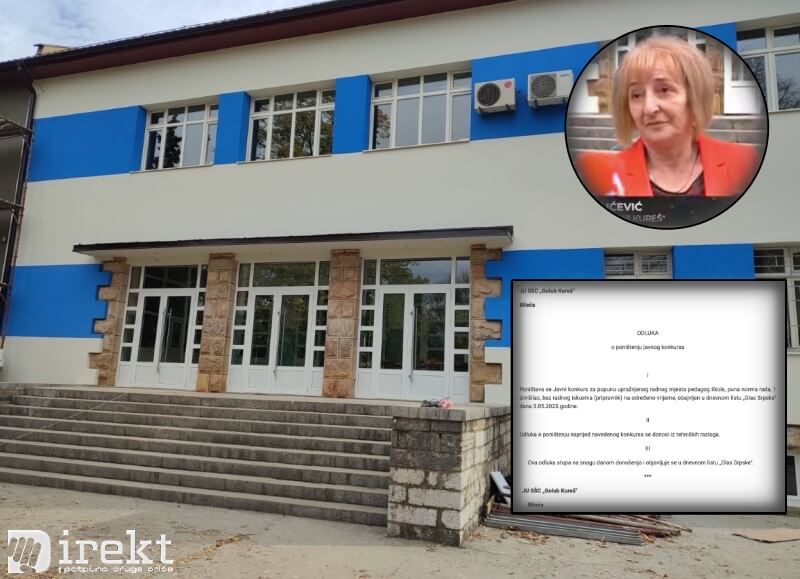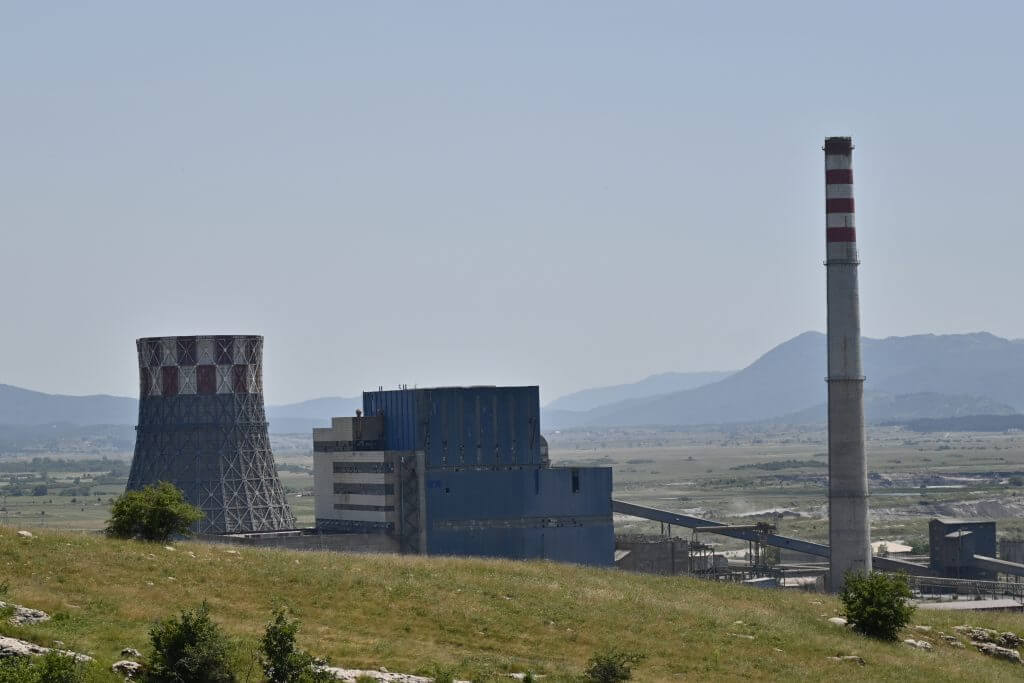Namely, for the initial vacancy announcement for the intern educator position, only the daughter of Director Milićević showed interest, but after quiet discontent from the Bileća public, that competition was annulled. The justification for annulling the competition only cited technical reasons.
“Unlike the first competition, where an intern on a fixed-term contract was sought, the time frame was omitted in the second announcement. In the second attempt, two candidates applied, one of whom was again the daughter of Director Milićević. It’s true that she had a slightly higher grade average than the other candidate. The director’s daughter scored the maximum number of points on the test and the interview, but our sources emphasize the authenticity of her diploma and her competence to perform the role of an educator.
The question also arises whether the school coincidentally or intentionally needed an inexperienced pedagogue at that time.
“She suddenly appeared, nobody even knew that she had studied somewhere and completed that degree. The director bragged that the commission was hers”, says our source, aware of the fact that the law equates private and public universities.
We sent questions about which university her daughter and now a colleague had graduated from, when and where, to the school’s director, Zdravka Milićević, but we have not received answers to those questions by the time of publishing this article.
Furthermore, in the scoring section related to unemployment office records, the director’s daughter did not receive any points.
“I believe all of this was orchestrated to secure a job for her daughter before the director retires. We’ll see when the intern period ends; the intention is probably for her daughter to get a permanent position there”, claims our source.
As we understand, the second candidate, who obtained her diploma from a faculty in Pale, out of frustration due to certain aspects of the competition and suspicions that the director’s daughter knew all the questions in advance, refused to take the tests, which she conveyed to the commission. Although she scored the maximum points in the subsequent interview, she did not want to comment on this matter for our portal”.
Everything in accordance with the law
At the “Golub Kureš” High School Center, they do not see a problem and emphasize that everything was done in accordance with the law.
“Two candidates who met the requirements of the competition applied within the specified period. After the procedure was completed in accordance with the Regulations for Employment in Secondary Schools and the criteria for selection and scoring, the school posted a ranking list of candidates who met the requirements of the competition, with points awarded for each criterion individually and the total number of points for each candidate. After the appeals period expires, the school will conclude an employment contract with the selected candidate, in which mutual rights and obligations will be defined”, the “Golub Kureš” High School Center stated in a previous response to our portal, signed by Director Milićević”.

Photo: ATV
Nothing New in Bileća
That it’s known in advance who will be the best candidate in competitions in Bileća is not a novelty for the President of the Municipality Assembly of Bileća, Mata Vujović, especially, he adds, when it comes to the candidates from the SNSD. Director Milićević was precisely a candidate from this party.
“People who apply for jobs in education have been experiencing injustices for years when it comes to entrance exams. Only those who are favoured get the maximum points on the test and interview, which essentially exist only to regulate the number of points for candidates who must pass”, Vujović believes.
He adds that because of this, most young people who have the necessary diploma do not apply.
“What’s most interesting about all of this is that we all in Bileća know how the candidate was awarded her diploma. I really don’t want to comment on that. The law is whatever suits them. There are more graduate pedagogues in Bileća, but they didn’t apply for this competition”, Vujović concludes”.

Mato Vujović (Photo: Impuls)
Ćuskić: Authorities Deliberately Avoid Regulating Public Employment
There were no complaints about the competition results. This is not surprising, says Mirjana Ćuskić from the Helsinki Committee for Human Rights, speaking to “Direkt”, because individuals who are victims of predetermined outcomes in public competitions rarely decide to speak up about their experiences.
“They do this out of fear that they might not be able to find employment in the future if it becomes known that they are problematic and seeking justice. Legal proceedings for those who do decide to seek justice are very expensive and lengthy, and often, due to the strong influence of politics on the judiciary, result in negative decisions for the victims. The only way to combat such negative phenomena in society is to encourage citizens who face these problems to speak out and protect them. It is also our responsibility to continuously call on the judicial and prosecutorial institutions to act in accordance with the law and severely punish any form of corruption and misconduct in public employment”, says Ćuskić for our portal.

Mirjana Ćuskić
Competitions with predetermined outcomes are a reality in Bosnia and Herzegovina, she says, and holders of public office and individuals in managerial and directorial positions spare no effort to ensure a position in a public institution or company for their relatives.
“Knowing this, a large number of capable, qualified candidates do not even apply for advertised competitions, thus leaving room for manipulation by those in charge and for the realization of their own will. This is something that we, as a society, must change. We must not remain silent out of fear about everything happening around us, which leads to an increasing number of people leaving our country year after year. Corruption, nepotism, and other abuses require us to speak out publicly and loudly against them, because only in this way can we enable a better future for generations growing up and living in Bosnia and Herzegovina”, she emphasizes and adds that those responsible in public institutions deliberately avoid regulating the field of public employment, especially potential conflicts of interest, as well as conducting and scoring oral interviews.
“Of course, this field can be regulated by laws and regulations, but in Bosnia and Herzegovina, there is no political will for these processes, as this would directly limit the space for manipulation in employment”, concludes our interlocutor.







